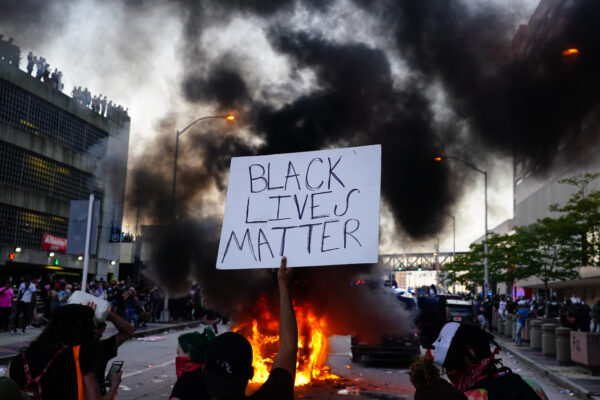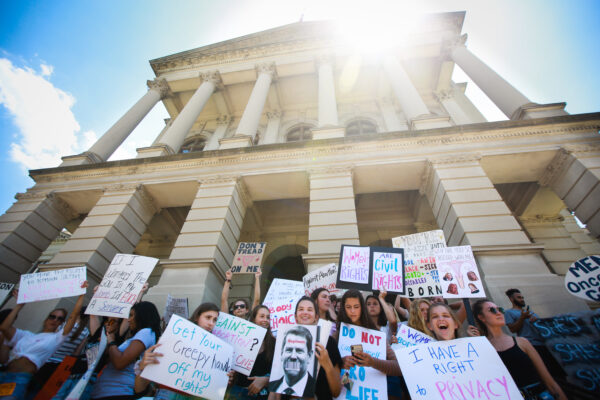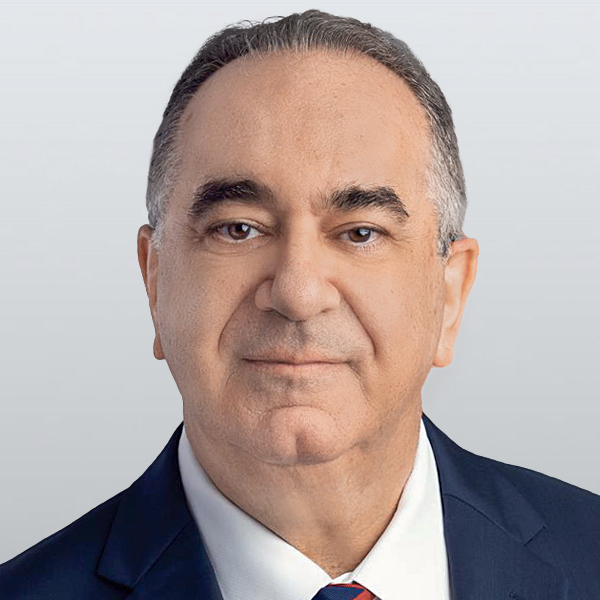Brian Kemp and Stacey Abrams’s second debate on Sunday night sounded a lot like their first one on Oct. 17.
The two veteran candidates were on their games. Neither committed a notable gaffe or game-changing miscue. They sparred about things they’ve fought about before, bringing to bear the facts supporting their respective sides.
They each opened nearly every statement by accusing the other of being untruthful or lying. Despite that, they stayed within bounds and shook hands at the end.
The two pounded each other’s records, Abrams hammering Kemp’s as governor, Kemp hitting at hers as state house minority leader and as a candidate.

Kemp touted his fast reopening of the state’s economy and schools after the COVID-19 pandemic began to which Abrams responded by decrying the state’s COVID death rate; saying it was a result of Kemp’s wanting to reopen first. Kemp tied the state’s large surpluses and COVID windfalls to the reopening, as the state wasn’t forced to use federal money to support closed businesses or unemployed workers. Abrams railed against his failure to use the money on social programs.
Abrams said the state’s economy was ailing, and it was Kemp’s fault. Kemp said the state was doing well in job growth, investment, and unemployment. He said his priority in a second term would be fighting the inflation brought about by President Joe Biden and Abrams’ Democratic allies controlling federal government for the last two years.
Abrams talked about jobs leaving the state because of Kemp’s abortion and election policies, and lamented the cancellation of Atlanta’s Music Midtown Festival because of concerns about attacks from guns. Kemp reminded viewers that Abrams had supported efforts to move Major League Baseball’s All-Star Game out of Atlanta. And he noted that Atlanta’s big Dragon Con festival, which attracts twice as many attendants as Music Midtown, went off as scheduled with no problems.
Abrams attacked Kemp’s gun rights law. Kemp defended it, noting that sheriffs and police chiefs had stood by him when he signed it and said it was designed to help citizens who had been unable to get weapon-carry permits to protect themselves from crime quickly during the pandemic. Abrams blamed Kemp for that crime. But Kemp tied her to it through her efforts to defund the police and eliminate cash bail.
Abrams decried the rise in gun violence. Kemp noted that during Atlanta’s disorders—alluding to the BLM disturbances of 2020 without naming it—citizens supporting the police walked the streets carrying AR-15 semi-automatic assault-style weapons on their backs, and there was no problem. Abrams criticized him for listening to the NRA rather than Georgia citizens.

Abrams went after Kemp for Georgia’s heartbeat bill, which prohibits most abortions, with certain exceptions, after a baby’s heartbeat is detected, usually around six weeks of pregnancy. She said that prosecutions of women who had abortions would take place in Georgia as in Texas under that state’s similar law. Kemp said that wasn’t true, and it is that doctors who perform illegal investigations can be charged but not the women. He alluded to the necessity of some investigations because doctors could be paid or induced to fudge details to allow an abortion, which shouldn’t be allowed. Abrams said that amounted to investigating women who had abortions.
Abrams more than once criticized “men” for being involved in abortion policy. Kemp noted his personal experience with a pregnancy crisis—watching with his wife as they saw two heartbeats on a monitor and then, a week later, seeing only one. Abrams said that wasn’t the same thing and cited a miscarriage her sister had.

Abrams charged racism more than once, in the state’s Election Integrity Act, and said one of her brothers had been pulled over in Georgia for “driving while black.”
Kemp—and moderator Justin Farmer of Atlanta’s WSB-TV—said the state has been setting new early voting records every day, with 1.5 million Georgians already having voted. Abrams said black and brown voters weren’t doing that because of Senate Bill 202, referring to the Election Integrity Act, but despite it.
Kemp cited support for him by most county sheriffs. Abrams said she didn’t have a good old boy network to support her, “107 sheriffs who want to be able to take black people off the streets.”
Answering Farmer’s question if they would respect the result of next week’s election, Abrams said yes. Kemp also said yes, tying his respect to the additional security in the Election Integrity Act, which tightened up on absentee ballot and dropbox usage, and voter roll checking.








